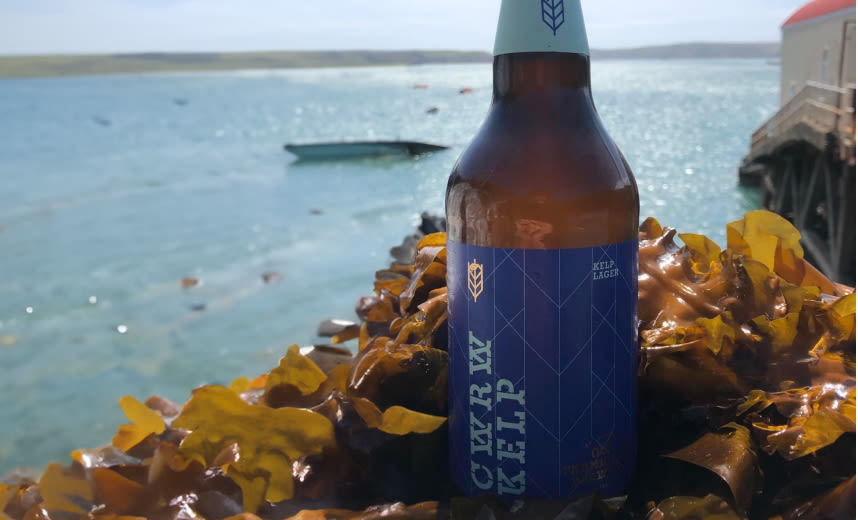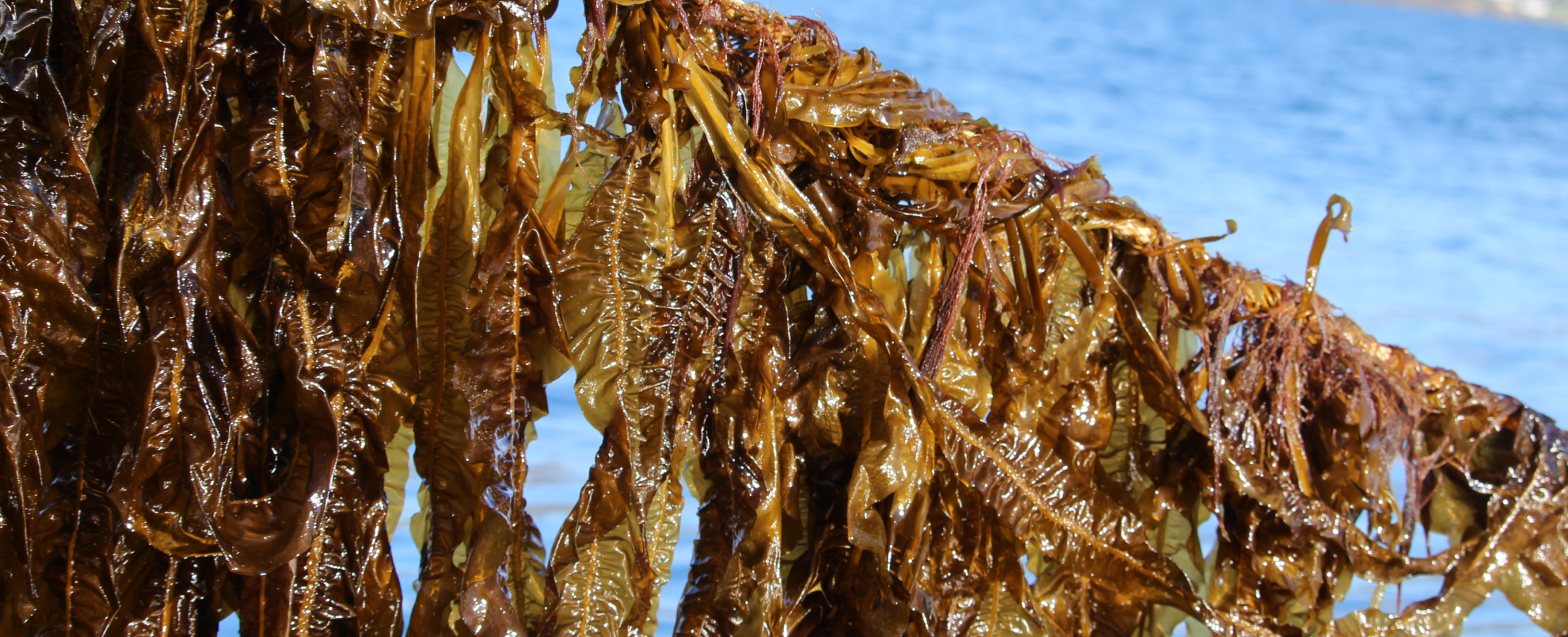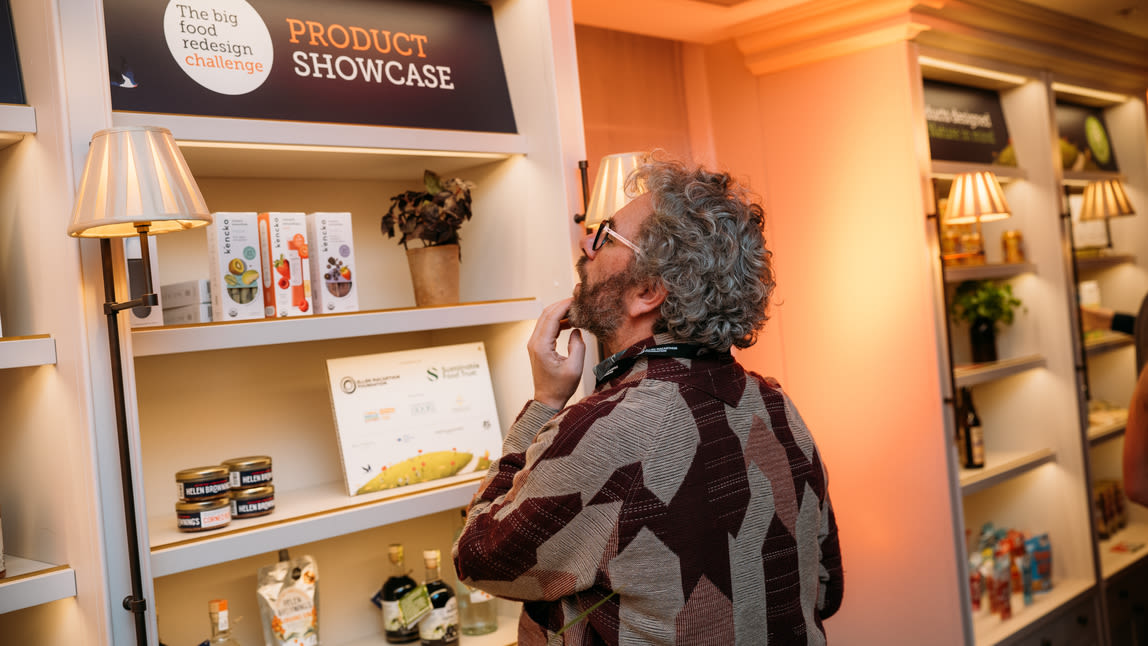On the crisp waters of Mulroy Bay, at Ireland’s northernmost tip, long strands of seaweed flap in the breeze as boats winch them out of the sea.
Within 12 hours, they’re transformed into dried flakes inside The Seaweed Company’s new processing plant on the bayside. During the key harvest season in April, up to 100 tonnes of seaweed are processed and shipped to wholesalers, restaurants, and retailers.
This is a welcome opportunity for former fishers in the bay, who have faced dwindling stocks of salmon, crab, and lobster. Aware that the seaweed market is expanding, General Manager Lorraine Gallagher has recently invested EU funds in the new plant. She now employs an extra 15 people at the peak of each spring harvest.
The Seaweed Company is building partnerships with food businesses and hospitality operators keen to use its SeaMeat product in beef burgers to cut emissions and have a positive impact on nature.
Seaweed burgers are just one of 141 products developed over the past two years as part of the Big Food Redesign Challenge. This project was conceived by the Ellen MacArthur Foundation and the Sustainable Food Trust (SFT) to accelerate the application of circular economycircular economyA systems solution framework that tackles global challenges like climate change, biodiversity loss, waste, and pollution. It is based on three principles, driven by design: eliminate waste and pollution, circulate products and materials (at their highest value), and regenerate nature. principles within the design of food products.

After creating a Circular Design for Food Framework in 2021, we invited food companies to experiment with creating food with lower-impact, diverse, and upcycled ingredients — all produced to deliver regenerative outcomes for nature.
We wanted to inspire food companies to see that by switching ingredients from the narrow range of crops and livestock that cover our landscapes into a more diverse selection, they can bring the demand that would create positive change at field and sea level.
We were bowled over by the responses, receiving submissions for everything from bread to ready meals. With products now in production and on retailer shelves we have been able to test exactly how well they could deliver for nature, using a specialist scoring system developed by the Ellen MacArthur Foundation, the SFT, and sustainable food ratings firm HowGood.
Number-crunching and copious rounds of checking revealed that the products had outperformed the norm on overall impact by 18%, a leap that includes improvements in six key metrics – biodiversity, soil health, water use, emissions from land use and processing, animal welfare, and labour risk.
This means circular design for food offers a route for food companies to ensure their sourcing strategies complement legislation designed to protect the environment, and build supply resilience.
Proving the nature benefit
The uplift in nature benefits from the product cohort is particularly evident on biodiversity, which the data suggests could see a 50% improvement compared with the industry average.
This can be attributed to a variety of factors. The most obvious way biodiversity wins when food designers broaden their sourcing horizons is that higher demand for a wider variety of plant and animal species translates directly into more diversity in our landscapes.
Regenerative farming can also minimise the use of harmful chemicals, while also building soil health, another key contributor to better biodiversity.
The Seaweed Company’s activities are a good example of the potential of circular design for food to help nature thrive. Seaweed supports ocean health by creating a habitat for diverse marine species. In tropical waters, its cultivation can reduce ocean acidity, aiding coral reef resilience and wider ecosystem stability. As a natural wave barrier, seaweed also protects coastlines.
Given their popularity, burgers have huge potential for cutting emissions and building biodiversity if an ingredient like seaweed were to be mixed in with the beef at scale. The Seaweed Company’s research suggests that its product (with seaweed replacing 25% of 1 kg of meat) can offset 8 kg of CO2e and conserve 1,800 litres of water, helping food companies to reduce their scope 3 emissions.
Our analysis indicates that swapping 25% of a burger with seaweed could see a 14% improvement in overall impact across the six key indicators including greenhouse gas emissions and biodiversity. It is important though that these lower-impact ingredients, like seaweed, are also grown or managed in ways that support regenerative outcomes.
Aside from burgers, seaweed is showing promise across a range of applications. There is renewed interest in the ancient practice of using it to enrich soil, allowing farmers to use less artificial fertiliser.
From pilot to potential
The Seaweed Company isn’t the only participant in the Challenge tapping into the benefits of seaweed. The Old Farmhouse Brewery, based in the farthest western point of Wales, flavours its Cwrw Kelp beer with sugar kelp seaweed harvested from local Community Interest Company Câr-y-Môr, Wales’ first commercial seaweed and shellfish farm.

The brewery has worked hard to reduce the environmental impact generated by its activities and support biodiversity. Regenerative production is a key part of this. The barley in its beer is grown in a mixed beef and arable farm, where cattle are regularly rotated throughout the fields, helping to fertilise the soil. As a result, the farm can now manage entirely without chemical fertiliser.
It has also introduced minimal tilling in the fields supplying its barley, helping to keep carbon in the ground. This retains soil structure, aiding its ability to hold water and in turn reduce flooding.
The next step for both businesses is building scale. Having invested five years in securing its licence to farm seaweed in Mulroy Bay, The Seaweed Company is currently refining its SeaMeat product so that it can be integrated into more meat processors’ systems.
Cwrw Kelp beer is available to UK customers of Fortnum & Mason, which now stocks a selection of Challenge products.
The next step for both businesses is building scale. Having invested five years in securing its licence to farm seaweed in Mulroy Bay, The Seaweed Company is currently refining its SeaMeat product so that it can be integrated into more meat processors’ systems.
Cwrw Kelp beer is available to UK customers of Fortnum & Mason, which now stocks a selection of Challenge products.
Burgers and beer are both high volume products, ripe for some ingredient tweaks to deliver for nature. We’d like to invite other food producers to join in on this mission, bringing greater supply resilience and commercial future-proofing in the process.

Want to stay up to date?
Subscribe to our newsletter to receive news from across the Ellen MacArthur Foundation, including the latest updates on our work in food.







